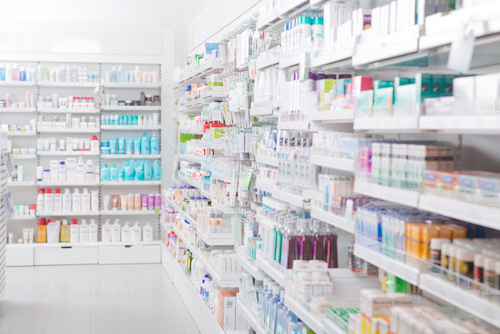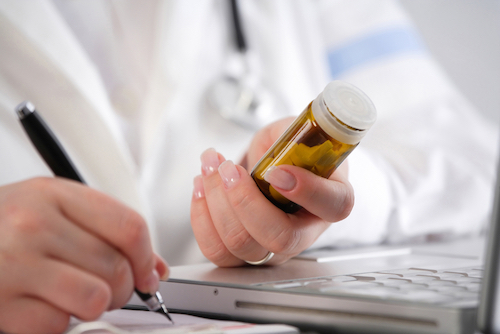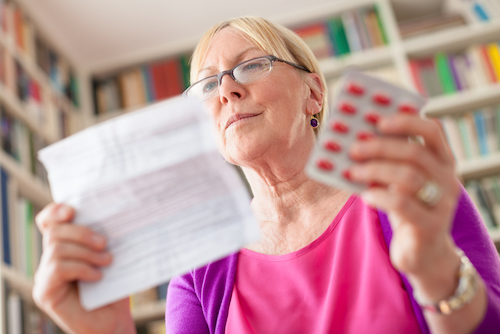Although healthcare in Slovakia is not yet up to the standard of many European nations, if you are an expat residing and working in the country, you should not experience too many problems in accessing your prescription medication. The country has a large number of pharmacies (lekáreň) from which you can obtain your medicine, regardless of whether you are signed up for public health care or have taken out private health insurance.You will be able to bring your prescription medication with you into Slovakia as long as it is not prohibited under the Opium Act. You will not be allowed to bring medication that contains controlled substances into the country. Either consult your GP before you leave, or check directly with the list on the Opium Act website. It is advisable to bring your medication with you in its original packaging so that customs officials can see that it is medicine and not an illegal drug.
If your medicine (or your child’s medicine) falls under the Opium Act, you will need a certificate. There are two kinds of certificate:
• Schengen certificate: for travel within the Schengen area
• Medical certificate: for all other countries
You can apply for a certificate through the website of the Central Administrative Office (CAK). The site is in Dutch, however. You can also download the certificate from the site so your GP can fill it in and sign it, then send the signed certificate back to the CAK. The CAK will need four weeks to process your certificate, so make sure you send in your application well before you travel.

You can also apply for a medication passport (also known as the European Medical Passport): note that this is not a medical certificate. It lists all the medicines you use or any that you are allergic to. You can obtain a passport from your own pharmacy or your GP.
Note that the pharmacy system in Slovakia has undergone a substantial overhaul in the past decade. Originally, in the early 2000s, it was made legally possible for one individual to own more than one pharmacy, thus allowing pharmacy chains to emerge, but these rules on ownership of pharmacies were reversed in 2011. Since then one natural/legal person can own only one pharmacy and one subsidiary.
Existing chains were forced to disband by 1 January 2015. You should find, therefore, that your local pharmacy is a small concern. There are currently in the region of 4,419 pharmacists in Slovakia, with 1,972 community pharmacies.
How much do prescriptions cost?
Whether or not you are registered with the state health insurance scheme, you may still need to pay for some prescription medication but it is quite cheap – about €0.17 for each prescription. You may be able to pay at a reduced rate if you are a pensioner.

Doctors’ prescriptions should be taken to a pharmacy within two weeks of being issued, otherwise they will become invalid. Prescriptions from emergency services are only valid for one day. Prescriptions for antibiotics must be picked up within five days.
Slovakia is estimated to have some of the cheapest costs of over the counter (OTC) medication in Europe. The country has a reference pricing system for medicines, with a maximum price set for a standard daily dose in each specific reference group of medication. Prices of pharmaceuticals with different active substances are linked to the cheapest alternative within an internal reference group.
According to new legislation, the first generic medicine entering the Slovak market must have a 45% initial price reduction compared to the original medicine, the second generic must have an additional 10% price reduction compared to the first, and the third generic must have an additional 5% price reduction compared to the second. So check with your pharmacist to see if there is a generic alternative to your more expensive brand-name medication.
How to get the care you need
First, you will need to register with your local GP. Most basic healthcare, such as visits to your doctor and hospital treatment, is covered under the state plan, so if you are working in Slovakia your employer should have signed you up with one of the state-approved insurance schemes and you will be covered for GP visits.

You may need to make a small co-payment, but your GP’s surgery should have a list of fees that the doctor is allowed to charge.
Should you need medication, your GP will be able to issue you with a prescription that you can take to your local pharmacy. Many drugs are also available over the counter but only from pharmacies: other outlets are not legally allowed to sell medication. Services in pharmacies are largely traditional such as: dispensing of prescription and OTC medicines, prescription and OTC medicines counseling, self-care consultancy and preparation of medicines.
Prescription medicines account for approximately 89% of the overall turnover in Slovak pharmacies; the share of OTC medicines is around 10%.

Your local pharmacy should have details of the nearest out-of-hours pharmacist in the event that you need medication when the pharmacy is closed, although in a genuine emergency it is recommended that you go to the nearest A&E. Remember that you can also buy medication from online pharmaceutical sites. There is even an experimental new medical vending machine in the underpass at the Trnavské mýto crossroads in Bratislava and more are planned, although this will not supply prescription medication.
You may also have a private health insurance policy which covers prescription charges. Make sure you take any insurance details, including your Slovakian public health insurance card, with you to the pharmacy, and you may also need to take the original packaging of your drug to the pharmacist, since brand names can vary from country to country.
Would you like to share your experience of life abroad with other readers? Answer the questions here to be featured in an interview!

